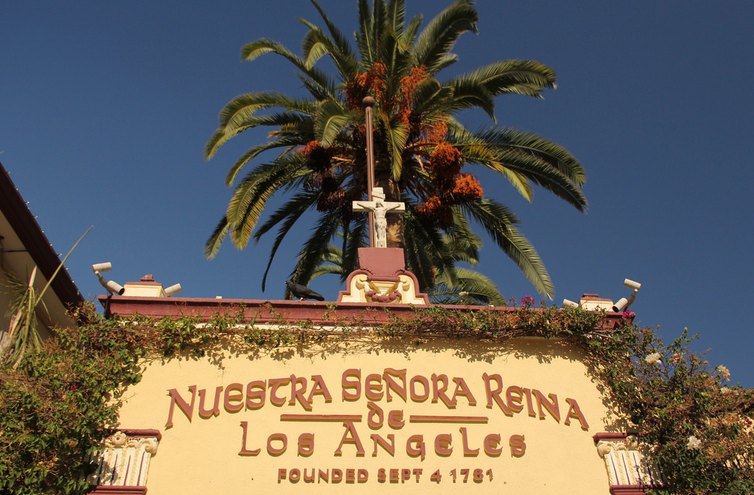The official name for los angeles when it was founded in 1781 was el pueblo de nuestra se ora la reina de los angeles

The Official Name for Los Angeles in 1781: El Pueblo de Nuestra Señora la Reina de los Ángeles
Los Angeles, known as the entertainment capital of the world and home to the glitz and glamour of Hollywood, has a rich history that dates back to its foundation in 1781. When it was first established, the official name of the city was El Pueblo de Nuestra Señora la Reina de los Ángeles.

Los Angeles, or “The City of Angels” as it is commonly referred to, has come a long way since its humble beginnings. The city’s name is derived from its original Spanish name, which translates to “The Town of Our Lady the Queen of the Angels.” This name is a testament to the city’s deep historical roots and the influence of Spanish colonization in the region.
A Historical Landmark
El Pueblo de Nuestra Señora la Reina de los Ángeles was founded on September 4, 1781, by a group of Spanish settlers known as pobladores. Led by Captain Felipe de Neve, these settlers established a small farming community along the banks of the Los Angeles River. The settlement grew slowly over the years, with its primary purpose being agricultural and trade-related activities.
Spanish Influence and Mission San Gabriel
During the Spanish colonial period, Los Angeles was under the jurisdiction of the Viceroyalty of New Spain. The Spanish authorities established Mission San Gabriel Arcángel, located just nine miles east of the pueblo, as a part of their efforts to convert the indigenous population to Christianity. The mission played a crucial role in the development of the surrounding area, including the pueblo of Los Angeles.
Transformation into a Mexican Territory
In 1821, Mexico gained independence from Spain, and Los Angeles became a part of Mexican territory. During this period, the city experienced significant growth and cultural exchange. The Mexican period brought changes to the social, political, and economic landscape of Los Angeles, further shaping its unique identity.
From Mexican Territory to American City
With the signing of the Treaty of Guadalupe Hidalgo in 1848, ending the Mexican-American War, Los Angeles, along with California, became a part of the United States. The city’s transition from Mexican to American territory marked the beginning of a new era for Los Angeles. The Gold Rush and the completion of the Transcontinental Railroad contributed to the city’s rapid growth and attracted waves of settlers from all over the world.
The Legacy of El Pueblo de Nuestra Señora la Reina de los Ángeles
Today, El Pueblo de Nuestra Señora la Reina de los Ángeles is recognized as a historic district, preserving the city’s rich cultural heritage. The area is home to iconic landmarks such as Olvera Street, the birthplace of Los Angeles, and the historic Plaza Church. Visitors can immerse themselves in the history and vibrant atmosphere of the early pueblo through the numerous museums, exhibitions, and festivals held throughout the year.
Los Angeles has come a long way from its humble beginnings as El Pueblo de Nuestra Señora la Reina de los Ángeles. As the city continues to evolve, it remains a testament to its diverse cultural heritage and the resilience of its founding community. El Pueblo de Nuestra Señora la Reina de los Ángeles will forever hold a special place in the heart of Los Angeles, a reminder of its vibrant past and promising future.
Source: Wikipedia
Share
Related Posts
Quick Links
Legal Stuff

